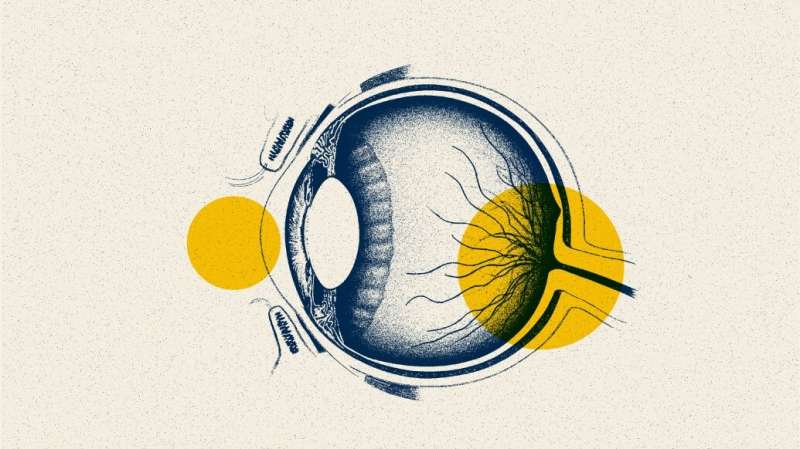This article has been reviewed according to Science X's editorial process and policies. Editors have highlighted the following attributes while ensuring the content's credibility:
fact-checked
peer-reviewed publication
trusted source
proofread
Cataract surgery reimbursements may not be enough for some patients

New research published in JAMA Ophthalmology suggests that Medicare reimbursements for complex cataract surgery cover less than two minutes of operating time, and an increase to reimbursements for the procedure may be justified. Complex cataract surgery requires more time and resources than simple cataract surgery, and this study indicates that the incremental reimbursement for the complex surgery is not enough to offset the increased costs.
"After accounting for the increased supply and material costs ($158.26), the remaining incremental reimbursement is $72.75, even without accounting for the additional postoperative visit associated with complex cataract surgery," Portney wrote. "With the per-minute operative costs of the surgeon, anesthesiologist, and operating room ($43.96/min), the incremental payment compensates for less than 2 minutes of operating time, a number far lower than the required time difference."
The research authored by Kellogg's David Portney, M.D., and interim chair Shahzad Mian, M.D., analyzed the difference in day-of-surgery costs and net earnings between simple and complex cataract surgery. The measured costs to providers for complex cataract surgery are significantly higher than simple cataract surgery, accounting for a difference of $877.85. This difference far exceeds the $231.01 incremental reimbursement provided by Medicare, leading to a net "negative" margin for complex cataract surgery.
"This difference can impact ophthalmologist practice patterns and access to care for patients needing surgical care," said Mian. "These findings suggest ophthalmologists are disincentivized from taking more complex cases and patients, leaving academic and referral centers to cover the cost of the surgeries."
Accessibility issues for patients who require more complex surgery are also likely to emerge.
"The downstream effect of this observation has significant implications for ophthalmologists, health care systems, and patients and may particularly affect the most vulnerable patients, including racial and ethnic minority individuals, who more commonly undergo complex cataract surgery," Portney wrote.
More information: David S. Portney et al, Comparison of Incremental Costs and Medicare Reimbursement for Simple vs Complex Cataract Surgery Using Time-Driven Activity-Based Costing, JAMA Ophthalmology (2023). DOI: 10.1001/jamaophthalmol.2023.0091



















